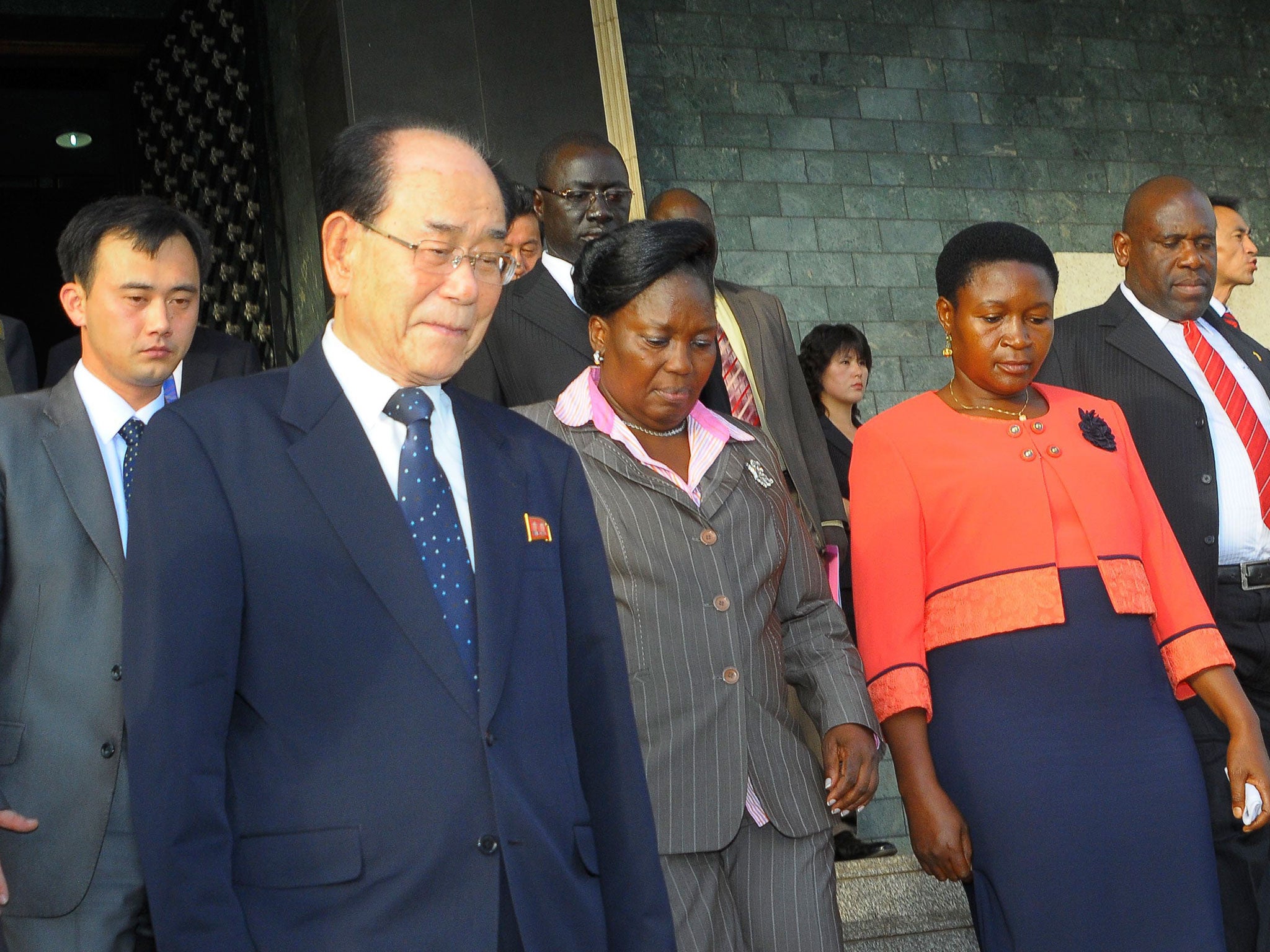North Korea strengthens ties in East Africa
Ugandan president Yoweri Museveni is increasingly seen as an anti-Western

North Korea is seeking to extend its influence in East Africa following a series of meetings with governments in the region.
The secretive communist state is hoping to gain allies among those sceptical of Western foreign policy, as it mounts a campaign against international sanctions relating to its human rights record.
After meetings with officials in the Democratic Republic of Congo and Sudan, North Korea’s titular head of state Kim Yong-nam was afforded a state banquet by Ugandan president, Yoweri Museveni in Kampala late last week. At the dinner Mr Museveni – a long-time critic of Western foreign policy – praised North Korea for what he described as its prominent role in combating imperialism. According to reports by the Associated Press, the visit helped to cement a deal that will see the North Korean military assist in training and equipping its Ugandan counterparts. The training will also include martial arts instruction.
In pictures: Life in North Korea
Show all 10The mission to East Africa comes after months of increased pressure on North Korea over its human rights record. Earlier this year, a bitterly critical UN Commission of Inquiry was published, which catalogued abuses in the country. As well has documenting cases of torture, extrajudicial executions, starvation and mass imprisonment, the report recommended that North Korea’s leadership should a face trial at the International Criminal Court in The Hague.
Pyongyang has responded by saying that the UN was “making a very great fuss”. While it has lobbied intensely for the report to be rejected, it has also sought allies to protest at what it sees as Western interference.
President Museveni is increasingly seen as an anti-Western. Africa’s fifth-longest-serving leader has become a vocal critic of what he considers to be the increasingly imperialistic policies of Western nations, particularly the US and the UK, the former colonial power in Uganda.
Subscribe to Independent Premium to bookmark this article
Want to bookmark your favourite articles and stories to read or reference later? Start your Independent Premium subscription today.

Join our commenting forum
Join thought-provoking conversations, follow other Independent readers and see their replies